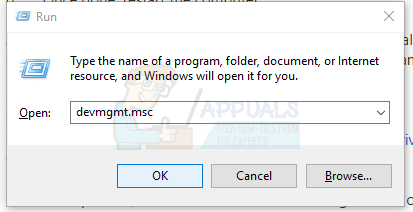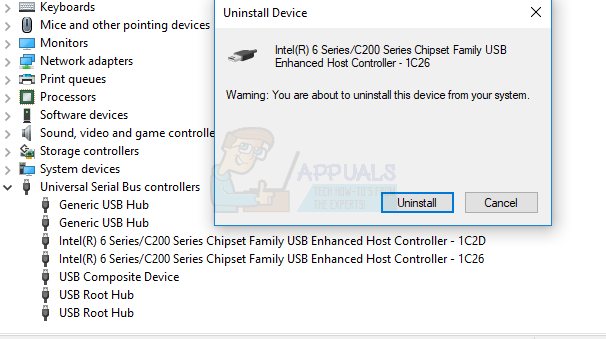Fix: Computer Shuts Down when USB is Plugged In
If your PC shuts down whenever you plug in a USB device, you definitely have a big issue to solve. There are several reasons your PC would shut down when a USB is plugged, and they’re mostly as a result of hardware faults, but they could be hardware sometimes too.
Your PC is likely to shut down this way when the metallic contacts of the USB port are touching each other or are not connected properly, or there’s a device onboard (including the connected USB device) draining a lot of power, or the motherboard or Power Supply Unit (PSU) being faulty.
We’ll aid you try a number of solutions to this problem in this article. Be sure to try to software fixes first before you head over to the hardware.
Method 1: Reinstall USB Drivers
Disconnect all USB devices from the computer and proceed with the following steps.
- Download the following registry file from here. Double-click and accept the UAC prompt and then apply it to your registry.
- Press the Windows + R keys, type devmgmt.msc. This opens up the Device Management Console.

- In the Device Manager, click on View > Show hidden devices. This will display all the USB drivers installed on the system.
- In the same Device Manager, expand the Universal Serial Bus controllers, right-click on the devices under this category and click Uninstall and then OK to remove the drivers.

- Now uninstall all devices under Disk Drives that you know are not present, and Storage Volumes.
- Restart the computer and your computer will try to install the drivers you deleted. You can additionally launch Windows Updates (Start > type Windows Updates > Press Enter) and run updates to install additional drivers.
- Insert a USB at this point to confirm if it’s been solved. Move to the next methods if the issue still persists.
Note: Also visit your manufacturer’s website on how to update your devices BIOS.
Method 2: Perform a System Restore
Some users fixed this issue after doing a simple system restore. This system restore guide will show you how to perform a system restore.
Method 3: Check USB Connectors
This method requires you to open up your PC. Inspect the metallic connectors of your computers and make sure they’re fully connected to the motherboard. If the terminals are soldered to the motherboard like in the case of a laptop, check if they’re soldered properly and do proper soldering if they aren’t.
Method 4: Check Connected Devices
Certain devices many develop faults and consume more than required power from your PC, causing it to shut down. Make sure the device you’re connecting to your PC doesn’t consume too much power. You can try connecting to another PC to confirm.
If everything is alright on another PC, try disconnecting some components on-by-one from the computer which you suspect might be consuming too much power e.g Camera, speakers, etc.. until you find what’s causing the issue.
Method 5: Change the Power Supply Unit
The PSU provides power to all the components of the PC. It’s more like the heart of the computer. A faulty PSU is one of the most probable reasons your PC is shutting down when an external device is connected. You should try changing the Power Supply Unit of the computer and confirm if the issue has been solved. If you use a laptop, try changing the power adapter or charger. You can get a new or refurbished Power Supply Unit from Ebay or a number of hardware shops online. Be sure to get a high quality unit this time.
Method 6: Disable USB Ports
This really isn’t a lasting solution, but a method of last resort. If none of the above method work, try disabling the USB ports all together. You can use other means like using the network to transfer your data. You can disable your USB ports by:
- Turning it off from the BIOS. Depending on your PC, the Esc, F2, F9, F12, or Del keys take you to the BIOS, where you can disable the USB port.
- In Windows, at the Device Manager (devmgmt.msc) by right-clicking on the USB port entries and selecting Disable Device.
